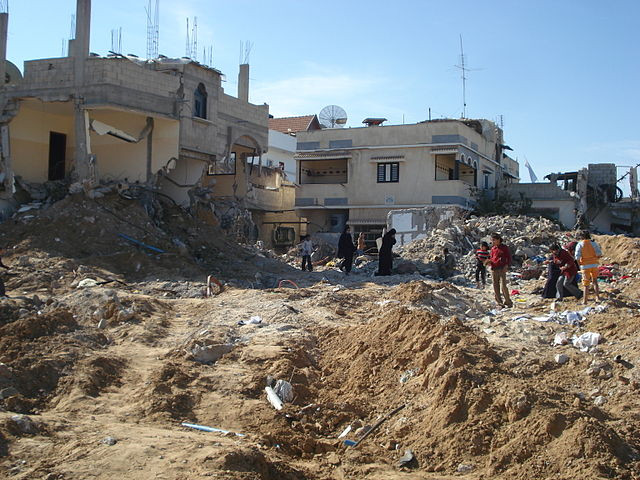A United Nations convoy tasked with delivering crucial food supplies to the embattled Gaza Strip came under fire from Israeli forces, raising serious concerns about the safety of humanitarian operations in the region. The convoy, which was carrying essential items such as wheat flour to the northern parts of Gaza, was attacked despite having its route pre-approved by both the UN and the Israeli military, highlighting the perilous nature of aid delivery in conflict zones.
According to UNRWA (the United Nations Relief and Works Agency for Palestine Refugees in the Near East), the convoy was stationary at an IDF (Israel Defense Forces) checkpoint when it was struck by naval gunfire, causing significant damage to its cargo but miraculously resulting in no casualties, as reported by CNN. This incident underscores the dire challenges faced by humanitarian efforts in Gaza, where over 2 million people, nearly 85% of whom are internally displaced, struggle to access basic necessities due to the ongoing conflict.
The Israeli military has not issued a response to inquiries regarding the attack, which is one of several instances where aid convoys or storage facilities have been targeted since the onset of hostilities. The conflict, which escalated following a Hamas attack on October 7, has led to a devastating toll on both sides, with thousands of casualties reported and a significant portion of Gaza's population facing severe food shortages and malnutrition.
In response to the attack, UNRWA made the difficult decision to halt convoy operations to northern Gaza, a region where an estimated 300,000 people are in dire need of assistance. The agency had previously managed to deliver food to the area as recently as January 23, but the February 5 strike has forced a reevaluation of the safety and viability of such missions.
The World Food Programme (WFP) has also announced a temporary suspension of its aid deliveries to northern Gaza, citing unsafe conditions and the collapse of civil order. Recent incidents involving WFP convoys have been marked by violence and looting, reflecting the desperation and chaos that pervade the region.
These developments come amid broader challenges for humanitarian organizations operating in Gaza, including funding shortages and operational hazards. UNRWA, in particular, faces a funding crisis following allegations of staff involvement in the October 7 attacks, leading to a significant reduction in donor support. The agency now operates with diminished resources, complicating its mission to provide relief to Gaza's beleaguered population.
The international community, including the US State Department, has expressed concern over the situation, emphasizing the need for humanitarian workers to safely distribute aid and for civilians to access assistance. The recent attacks on aid convoys not only highlight the complexities of delivering humanitarian aid in conflict zones but also raise questions about the commitment of involved parties to international humanitarian law.
As the conflict continues, the plight of Gaza's residents grows increasingly dire, with limited safe routes for aid delivery and an escalating humanitarian crisis. The challenges faced by UNRWA and the WFP in delivering assistance underscore the urgent need for a concerted international effort to ensure the safety of aid workers and the unimpeded flow of humanitarian aid to those in need.




